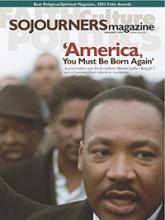In his book Everyday Apocalypse, writer David Dark contends that our notion of "apocalypse" is severely limited, if not altogether misguided. Its not the hysterical plot-fodder of end-times novelseerie prophecy and cosmic pyrotechnics signaling the end of the world as we know it. Genuine apocalyptic expression, Dark writes, "is a radical declaration concerning the meaning of human experience." Its a startling epiphany about the nature of Gods kingdom here in our midst. Its a Flannery OConnor novel that scandalizes the reader into recognizing the first as last, and vice versa.
In this kind of artistic apocalypse, then, Gillian Welcharmed with an acoustic guitar, a banjo, and the occasional harmonica or fiddlecould be one of the four horsemen. The title of the folk musicians latest album, Soul Journey, is apt: Her rambling, understated bluegrass sound, coupled with moody American-gothic storytelling, leads the listener through the uncomfortable territory of dreams deferred, disappointments realized, and hope in the midst of it allthe essence of what it means to be human.
Ten years into their professional career, Welch and her collaborator David Rawlings are known for intense musical and lyrical anthropology. Soul Journey preserves this reputation, but it also represents a departure from the formula that rocketed the unassuming duo into the spotlight.
Read the Full Article
